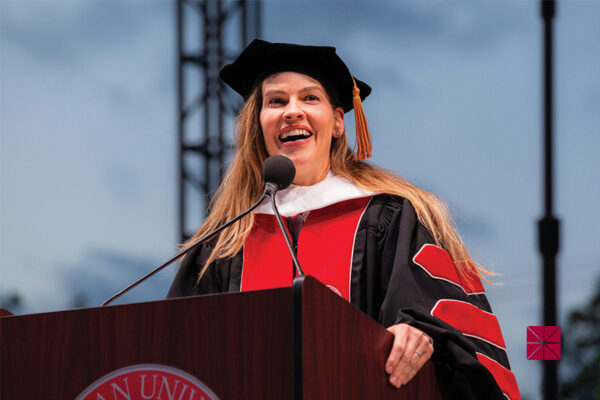(ORANGE, Calif.) – Anemia affects more than 2 billion people worldwide, including an estimated 83 million Americans at high risk. Now, a new app delivers reliable, accessible screening directly to consumers.
A new study co-authored by Chapman University professor and founding dean of the Fowler School of Engineering, Dr. L. Andrew Lyon, unveils a major advancement in noninvasive health technology: a smartphone app that uses artificial intelligence and a photo of a user’s fingernail to detect anemia..
Published in the journal Proceedings of the National Academy of Sciences (PNAS), the study demonstrates that this noninvasive, AI-augmented app provides hemoglobin estimates that rival traditional lab testing. With more than 1.4 million tests performed by over 200,000 users, the app represents a scalable, low-cost solution that broadens access to anemia screening, especially in underserved and remote communities.
With increased access, this app brings reliable screening directly into the hands of consumers, enabling real-time health monitoring and earlier intervention, empowering users to make informed decisions without waiting for lab results. While not intended for self-diagnosis, the app helps users understand when to consult a healthcare provider.
The app is particularly valuable for those with chronic anemia, such as people with kidney disease or cancer, who often require frequent monitoring. The study showed that personalized app use in these patients improved accuracy by nearly 50%, enabling safer, easier at-home management.
“This research, more than eight years in the making, represents a meaningful step toward improving accessibility in healthcare,” said Dr. Lyon. “It’s a testament to long-term collaboration and a commitment to empowering patients through innovation.”
Key findings:
- 1.4 M+ tests performed using smartphone cameras and AI-powered fingernail analysis.
- Hemoglobin (Hgb) estimates showed a mean absolute error of ±0.72 g/dL, improving to ±0.50 g/dL in users with Hgb >10 g/dL.
- Geolocation data enabled the first county-level anemia prevalence map in the U.S.
- App personalization for chronic anemia patients improved accuracy (from ±1.36 to ±0.74 g/dL).
- Users can now track their hemoglobin levels at home, reducing the need for frequent clinic visits.
- Traditional blood testing is time-consuming, expensive, and requires clinical infrastructure. This tool offers a low-cost, noninvasive alternative with massive scalability.
Dr. Lyon’s involvement highlights Chapman University’s leadership in health-focused engineering innovation. As founding dean of the Fowler School of Engineering, Lyon played a key role in shaping Chapman’s commitment to translational science, bringing together academic research and real-world impact.
###
About Chapman University
Founded in 1861, Chapman University is a nationally ranked private university in Orange, California, about 30 miles south of Los Angeles. Chapman serves nearly 10,000 undergraduate and graduate students, with a 12:1 student-to-faculty ratio. Students can choose from over 100 areas of study within 11 colleges for a personalized education. Chapman is categorized by the Carnegie Classification as an R2 “high research activity” institution. Students at Chapman learn directly from distinguished world-class faculty including Nobel Prize winners, MacArthur fellows, published authors and Academy Award winners. The campus has produced a Rhodes Scholar, been named a top producer of Fulbright Scholars, and hosts a chapter of Phi Beta Kappa, the nation’s oldest and most prestigious honor society. Chapman also includes the Harry and Diane Rinker Health Science Campus in Irvine. The university features the No. 4 film school and No. 66 business school in the U.S. Learn more about Chapman University: www.chapman.edu.
Media Contact:
Bob Hitchcock, Director of Strategic Communications




